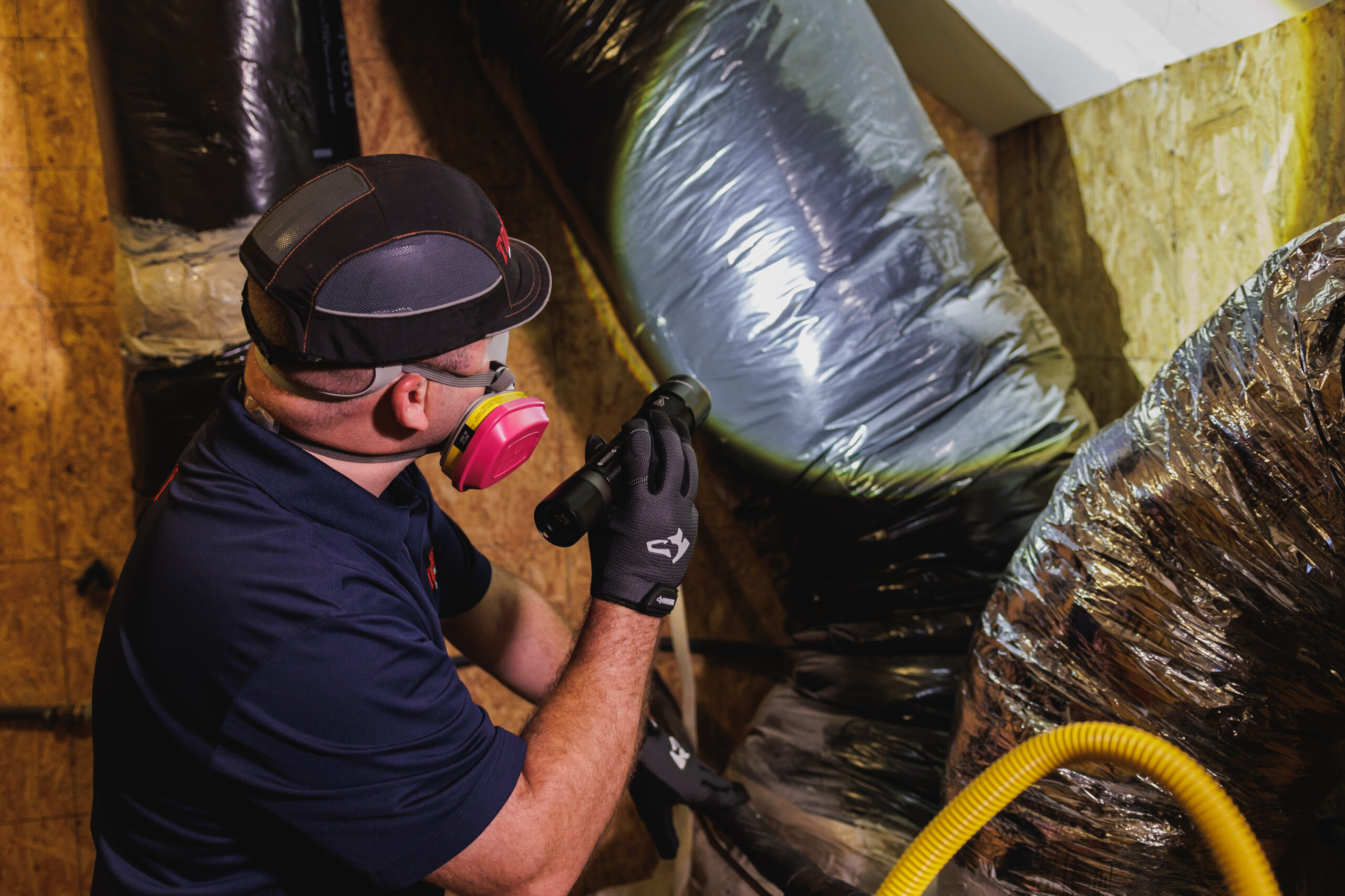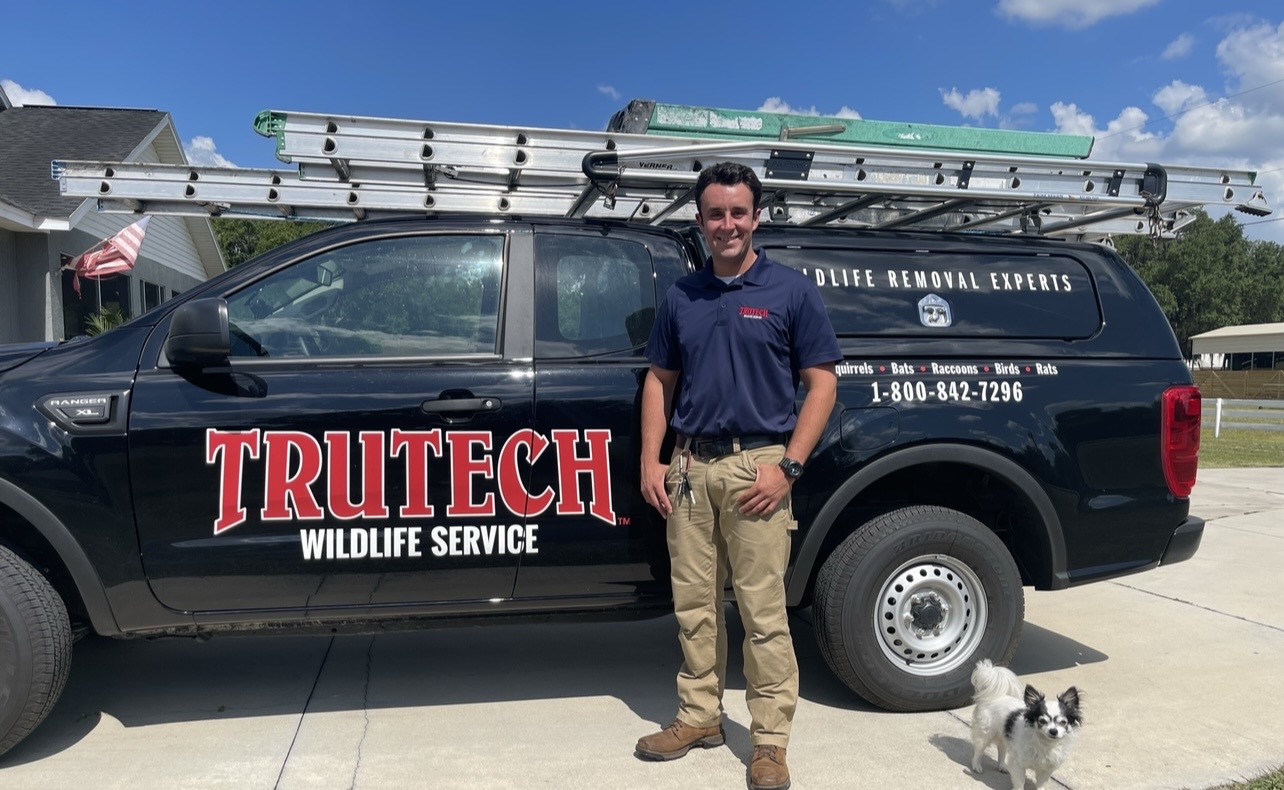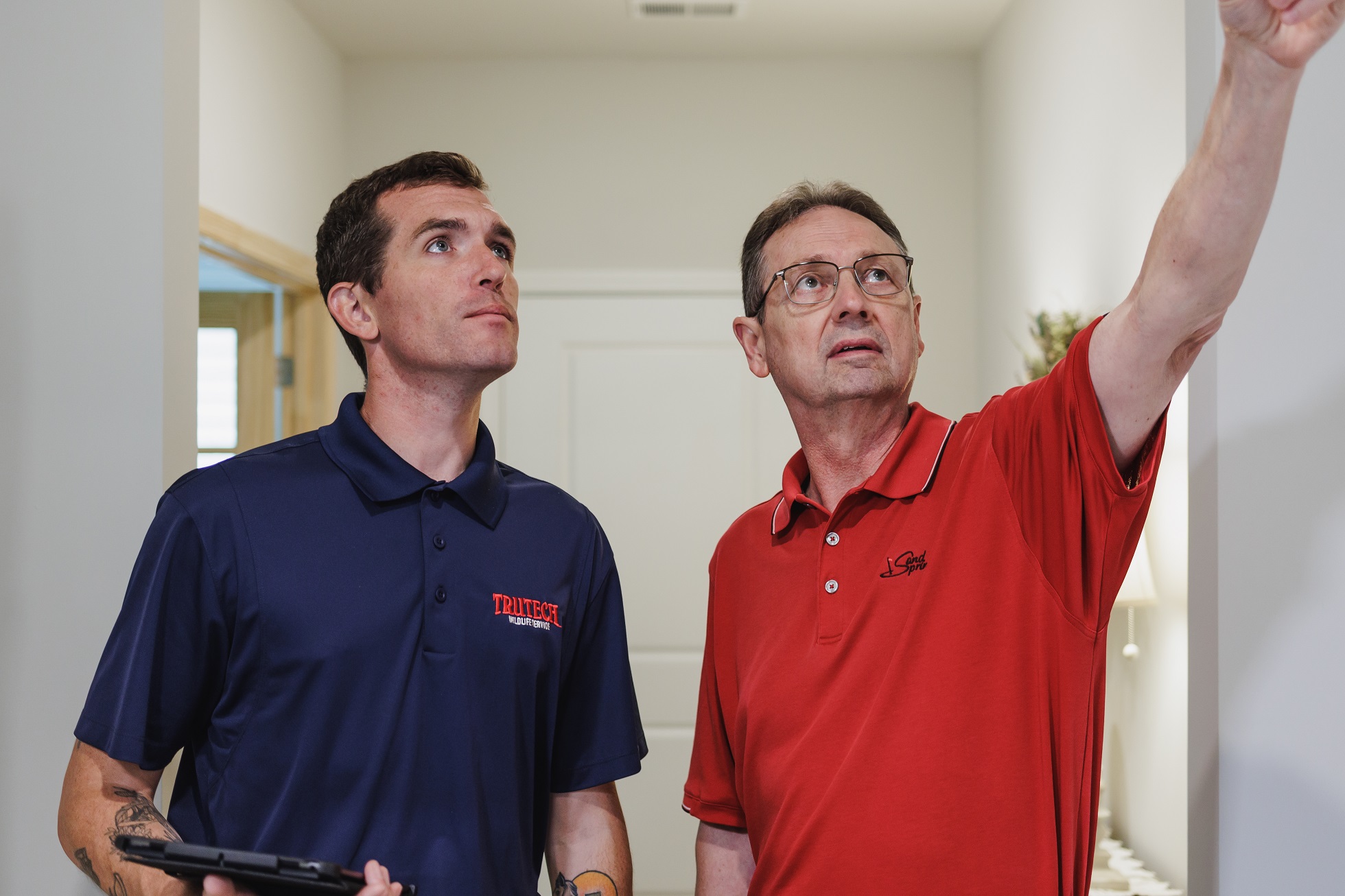There are 13 species of bats in Florida; several of these, including little brown and big brown bats, may be found in residential homes and businesses.
Bat problems fall into one of three categories: roosting bats, a lone bat in the living area of a home, and bats flying around the house. If a bat is identified in the living area of the home, it can be legally be trapped and removed.
To better understand bat infestations in Jacksonville, FL we asked Derrick Clay, district manager, a few questions.
Jacksonville, Florida Bats
Where do bats live in Jacksonville, Florida?
Natural habitats would be dense, wooded areas. We find most of our activity in exterior soffits, attics, and behind fascia boards around homes.
What is the most common sign homeowners notice about bat infestations?
Guano droppings dispersed along the exterior of the home and exit areas of the colonies such as roof returns and eaves. People also notice bats exiting their home at dusk or evening hours of the day.
What bat species typically live in attics in Jacksonville, Florida?
Big brown bats, eastern red bats, little brown bats, hoary bats, Seminole and gray myotis bats.
How does Trutech get rid of bats in Jacksonville, FL?
The exclusion process is done with a bat cone or bat valve. We exclude the entire home except the daily point of exit/entry.
We secure a one-way bat valve over the hole, allowing the bats to exit the nest but not re-enter freely. We leave the valve up for 1-4 days, remove it after the bats have shown no sign of re-entry, clean the roosting area, sanitize and treat for ectoparasites.
We then seal up this final area so the bats can’t enter again.
Is it illegal to remove bats in Florida?
It is not illegal to remove bats in Florida, but there are restrictions and protections.
Are bats protected in Florida? What do these protections mean for homeowners?
Bats are a protected species in Florida. There is a 4-month “blackout season” where you cannot remove or exclude an area where bats are nesting. This time period is from April 15- August 15.
This means that homeowners have to live with a known colony during this blackout season unless they apply for a waiver through FWC (The Florida Fish and Wildlife Conservation Commission).
This waiver is generally denied unless there are proven health concerns for an occupant of the home. This also means that once the blackout is lifted, your attic is full of bats, guano and diseases that can be extremely harmful for the homeowner.
You’d want a professional company, such as Trutech, to remove the colony and complete the restoration process of this specific area.

Derrick Clay
Derrick Clay is the district manager for Jacksonville, FL and Orlando. He joins Trutech Wildlife Service with over thirteen years of experience in the pest control.








